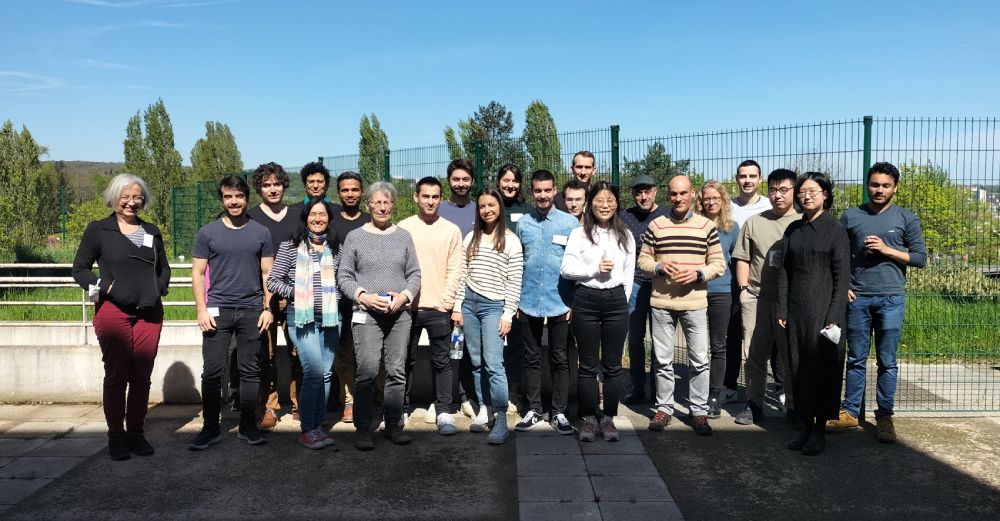Research - Learning to Design Robust Natural Language Generation Models for Explainable AI
Newsletter
In April, industry practitioners (Google and Orange), senior researchers, and the members of the European research project NL4XAI (Natural Language for Explainable AI) got together for a spring school in Nancy (France). For three days, they shared their knowledge on using natural language to generate explanations for decisions by an AI system which can be understood by non-expert users.

According to EU legislation, humans have a right to be given an explanation when a decision that affects them is made by an artificial intelligence (AI) based system (e.g., why an application for a loan was rejected). However, AI-based systems, which mainly learn automatically from data, often lack the required transparency. Scientists and industry, therefore, have organized a Spring School as a part of the NL4XAI (Natural Language Technologies for Explainable Artificial Intelligence) research project, an initiative funded by the Horizon 2020 research and innovation programme in the framework of the European Union’s investment in Explainable Artificial Intelligence.
Emerging as the first European Training Network (ETN) on Natural Language (NL) and Explainable AI (XAI), the project is a joint academic-industry research collaboration that brings together 19 beneficiaries and partners from 6 different European countries, including France, Malta, Poland, Spain, The Netherlands, and United Kingdom. The main goal of this 4-year initiative is to train early-stage researchers (ESRs) who face the challenge of designing and implementing a new generation of self-explaining AI systems. The NL4XAI network also facilitates sharing state-of-the-art knowledge on the subject of Explainable AI.
Tackling inconsistencies
Natural Language Generation (NLG) is an artificial intelligence technique capable of generating text from various types of input, such as numerical data, text, or knowledge bases, and therefore providing a potentially powerful tool to explain the reasoning of AI models. However, the models used in these techniques are not error-free: before they can be used to explain the reasoning of AI models, they need to be further improved. In particular, it must be ensured that the text they generate is faithful to the input, that it covers all the information present in the input, and conversely, that it does not contain content that is irrelevant or even contradictory to the input.
Along with this Spring School, the NL4XAI members have focused on explainable methods for NLG, which aim to detect errors in the output of NLG models in order to explain their sources. Specifically, they have delved into a series of lectures and a hands-on workshop, being exposed to an in-depth analysis of the types of errors that can be produced by these models. The lectures were given by both industry practitioners (Orange Lannion, France; and Google, London, UK), and senior NL4XAI researchers, and provided the ESRs with the background necessary to understand neural NLG models. In addition, the workshop has allowed the ESRs to study the errors made by existing NLG models and reflect on both the implications of such errors and ways of remedying them.
Fifth pooling of the network
The NL4XAI has already hosted four training events, including events focused on Ethics/Law in Natural Language Processing, more broad natural language technology, and Interaction/Interfaces. In addition to these official training events, the ESRs have been learning from fellow scientists at different universities and companies. In 2021, we saw fruitful exchanges with the University of Malta, Maastricht University, Warsaw University of Technology (WUT), IIIA-CSIC, and CITIUS-USC. With fewer COVID-19 related travel restrictions in 2022, the ESRs will also be able to visit Utrecht University, the University of Twente, TU Delft, ARG-tech, as well as the companies Orange, Wizenoze, and Info Support.

Twitter: @nl4xai
LinkedIn: NL4XAI
Nava Tintarev
Maastricht University, The Netherlands
n.tintarev@maastrichtuniversity.nl
Milan Verbrugge
Delft University of Technology, The Netherlands
M.D.Verbrugge@tudelft.nl
Andrés Ruiz Hiebra
University of Santiago de Compostela, Spain
andres.ruiz@usc.es